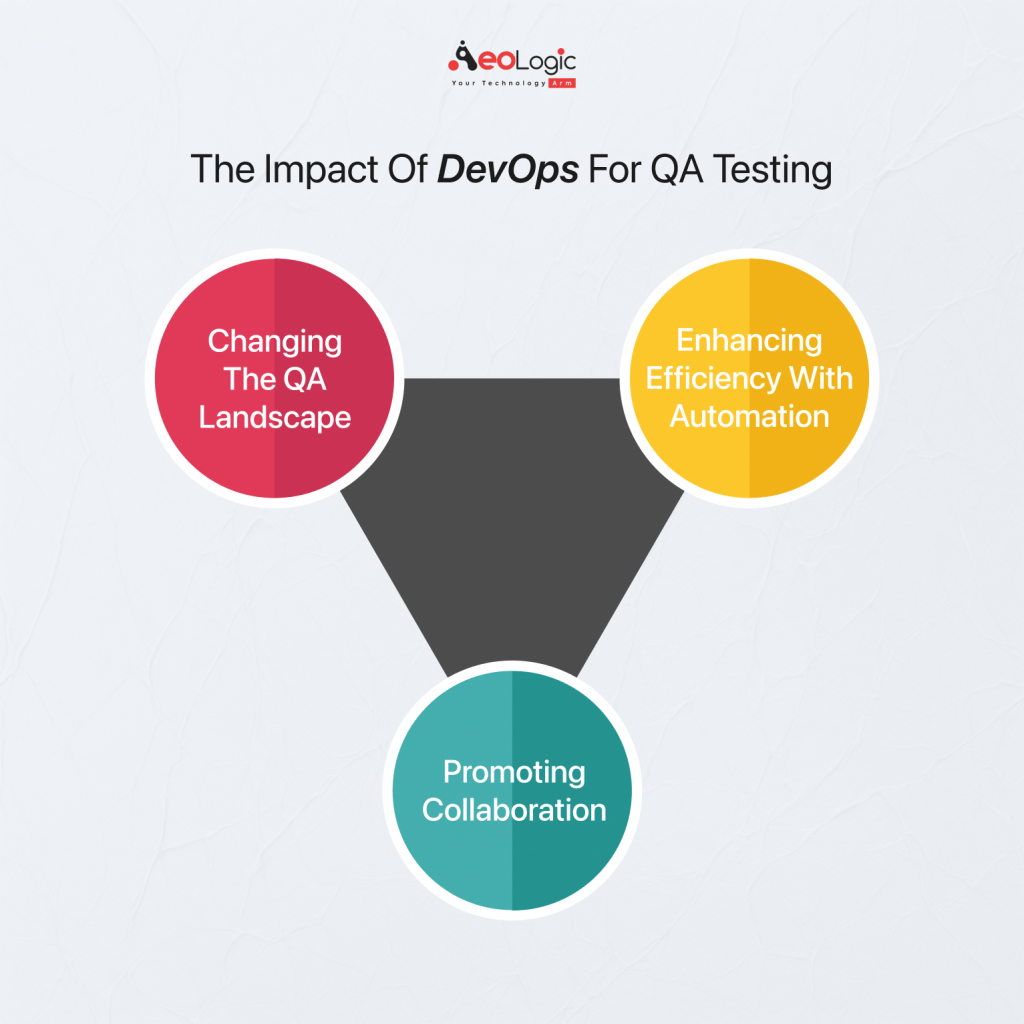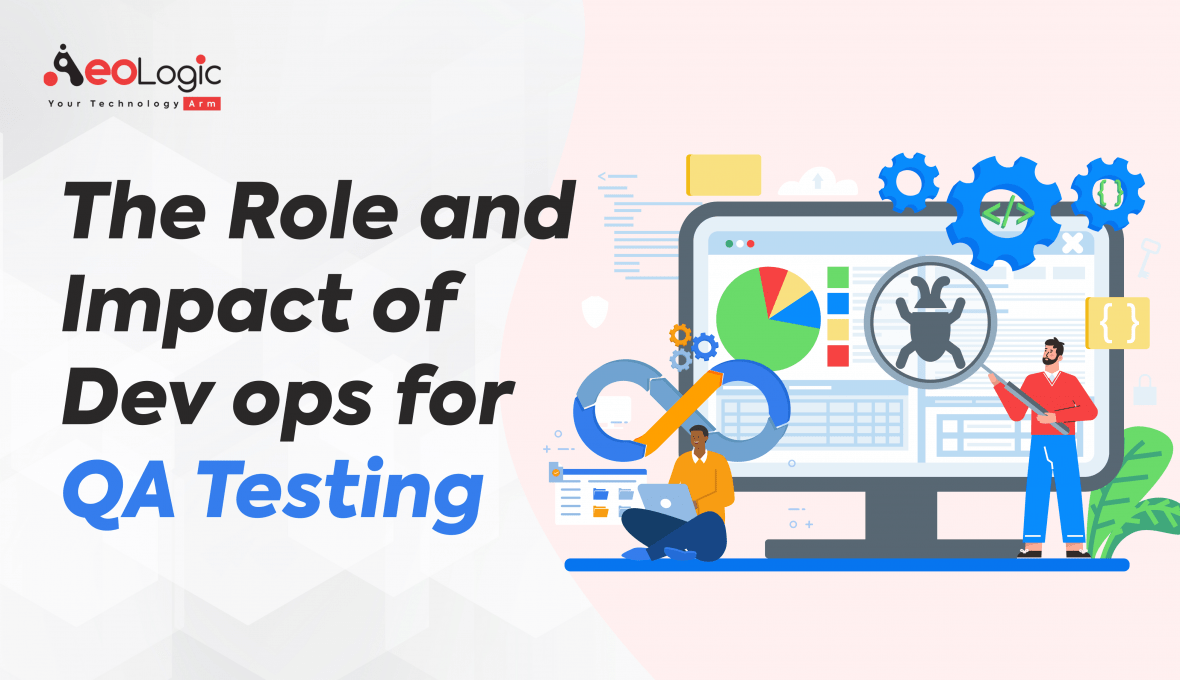DevOps has dramatically altered the way software development and operations work, transforming the traditional siloed structures into more integrated, collaborative environments. But where does QA testing fit in this DevOps landscape? Let’s deep dive into the impact of DevOps for QA Testing and how it is shaping the future of software delivery.
The Power of DevOps
Before we jump into the meaty stuff, let’s make sure we’re on the same page about DevOps. DevOps is a set of practices that combines software development (Dev) and IT operations (Ops), aiming to shorten the systems development life cycle and provide continuous delivery with high software quality.
The Crucial Role of QA Testing in DevOps
Now, how does QA (Quality Assurance) testing come into play? It’s simple. In the DevOps world, the goal is to deliver faster, but not at the expense of quality. And that’s where QA testing comes in. It ensures that the quality of the software is maintained while keeping pace with the rapid development and deployment cycles.
Shifting Left, Shifting Right
Under DevOps, the concept of ‘shift left’ has become a standard. It means that testing is performed earlier in the lifecycle (i.e., it is ‘shifted left’), allowing any issues to be detected and fixed early.
But there’s also ‘shift right’, which involves extending testing into the operation and monitoring phases. This allows real-time validation and verification of the system in the production environment.
Together, ‘shift left’ and ‘shift right’ encapsulate the role of QA testing in DevOps, ensuring quality at every stage of the software development and delivery pipeline.
Also Read: The Role of Collaboration and Communication in Successful Testing
The Impact of DevOps for QA Testing

DevOps has significant implications for QA testing. It changes the way testing is carried out and emphasizes the importance of automated testing.
Changing the QA Landscape
Before DevOps, QA was typically a separate phase where testers would manually test the software after development was done. However, with the impact of DevOps for QA testing, there’s a shift towards integrating testing into the development and operations phases. This means that QA is no longer an afterthought but an integral part of the entire software lifecycle.
Enhancing Efficiency with Automation
One of the biggest impacts of DevOps for QA testing is the increased use of automation. Automated testing tools allow tests to be carried out quickly and repeatedly, which is crucial for the rapid and iterative deployment cycles in DevOps.
| Manual Testing | Automated Testing | |
|---|---|---|
| Speed | Slow | Fast |
| Cost | High | Low over time |
| Scalability | Limited | High |
| Consistency | Can vary | High |
| Efficiency | Can be low | High |
The table above illustrates how automation can improve QA testing in a DevOps environment. The efficiency, speed, and consistency of automated tests are why they’re a key component of DevOps.
Promoting Collaboration
The impact of DevOps for QA testing also extends to team structures and collaboration. It breaks down barriers between developers, operations, and QA testers, fostering a more collaborative environment where everyone is responsible for quality. This can lead to more effective problem-solving and a higher-quality product overall.
Navigating the Impact of DevOps for QA Testing
The transition to a DevOps model can bring its challenges for QA testing, from the need for new skills to a shift in mindset. But here are some tips to help you navigate these changes:
- Embrace Automation: The use of automated testing tools is crucial in a DevOps environment, and becoming proficient in these tools can greatly enhance your QA testing effectiveness.
- Develop New Skills: As a QA tester in a DevOps environment, you’ll need to understand the development and operations processes, not just testing. Expanding your skill set to include things like coding and scripting can be extremely beneficial.
- Foster Collaboration: Encourage open communication and collaboration within your team, as this is at the heart of DevOps.
The impact of DevOps for QA Testing is significant, and it’s changing the face of QA as we know it. But by embracing these changes and adapting to the new environment, you can ensure that you continue to deliver high-quality software, faster and more efficiently than ever before.
Tips for the Right Balance of Quality Assurance and DevOps
- Integrate QA into DevOps Cycle: Make QA a part of the entire DevOps process for early bug detection and resolution.
- Strategic Automation: Implement automation for repetitive tasks while keeping complex testing manual.
- Embrace Shift-Left Testing: Incorporate testing early in the development cycle to identify issues sooner.
- Foster Communication: Encourage strong communication and collaboration among all team members to avoid misunderstandings.
- Continuous Learning: Encourage regular training and learning to stay updated with the latest trends and best practices.
- Use Appropriate Tools: Select the right tools for your needs such as Jenkins for integration, Selenium for automated testing, and JIRA for project management.
- Customer Satisfaction: Gather and act on customer feedback to ensure your product meets its purpose and delivers value.
Also Read: The Benefits of Effective Software Testing Processes
Final Words
In conclusion, the impact of DevOps for QA testing is transformative. It emphasizes the need for early and continuous testing, promotes the use of automation, and fosters a more collaborative work environment. While it comes with its challenges, adapting to this new landscape presents a wealth of opportunities to enhance software delivery processes and outcomes. It’s an exciting time to be part of this dynamic field, and by staying agile and open to new ways of working, we can harness the full potential of DevOps for QA testing.
Contact us now to schedule a free 60-minute call!
Frequently Asked Questions
What are some popular tools for QA Testing in a DevOps environment?
There are numerous tools available to assist with QA Testing within a DevOps model. These include Selenium for automated web testing, JUnit for unit testing in Java, Jenkins for continuous integration and delivery, Docker for creating isolated environments for testing, and JIRA for bug tracking and project management.
How has the role of a QA tester changed with the introduction of DevOps?
In the past, QA testers typically worked separately from the development and operations teams, and testing was often a distinct phase at the end of the development process. With the introduction of DevOps, QA testers are now integrated into the development and operations processes, and testing is carried out continuously throughout the software lifecycle. This has led to the role of a QA tester becoming more multifaceted and collaborative.






